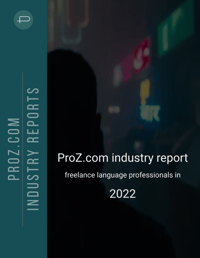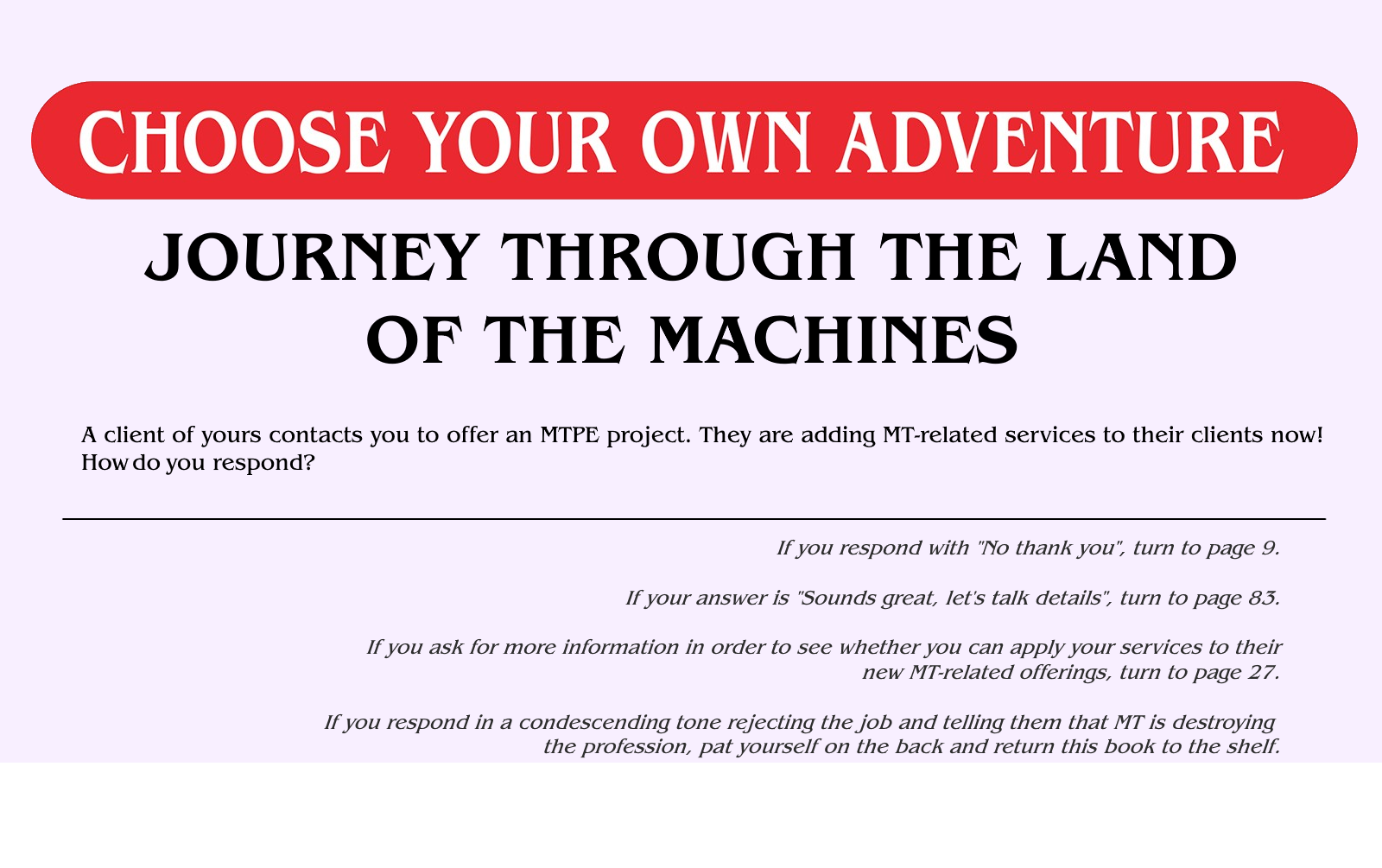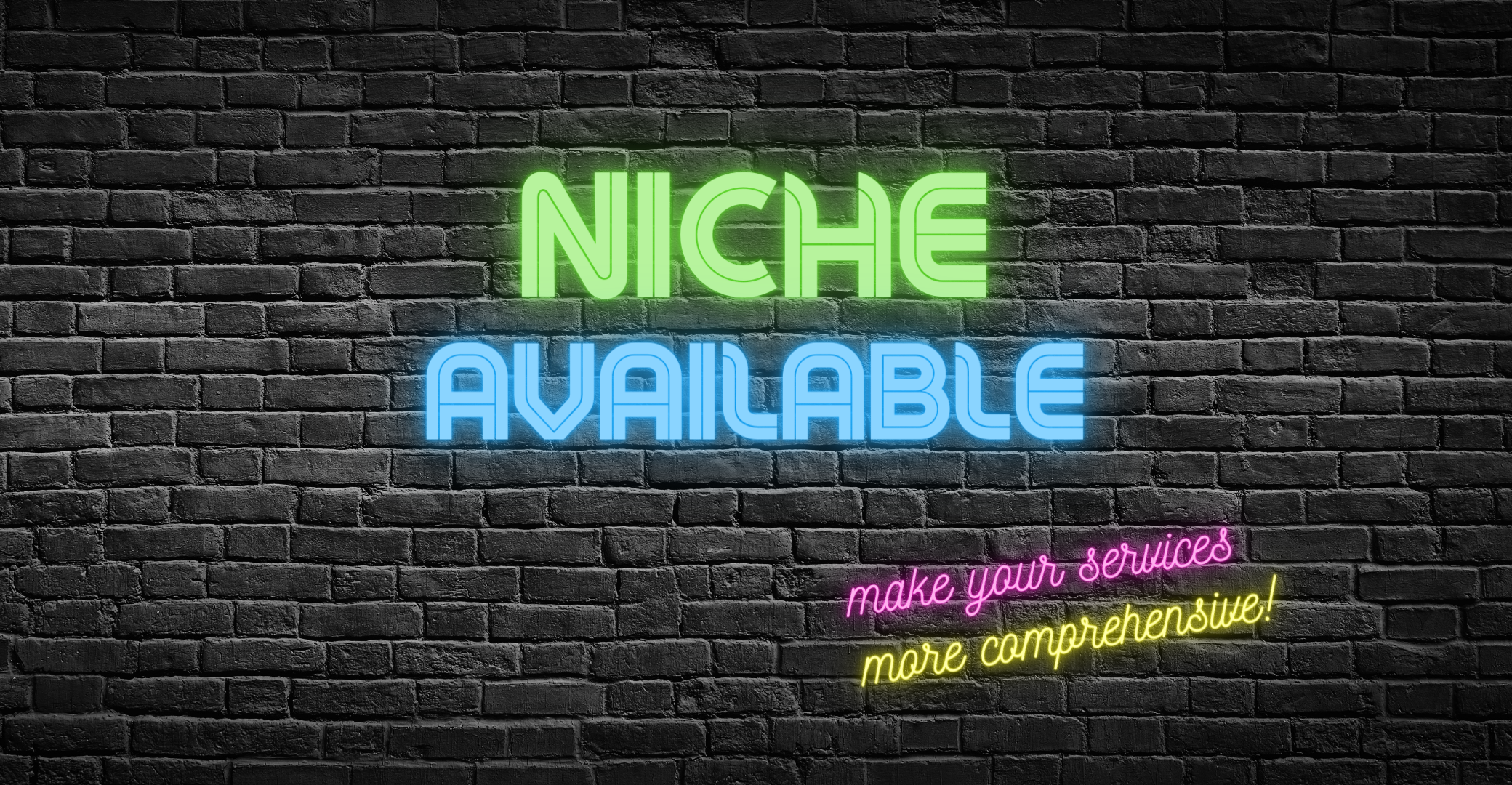In a previous industry report, we touched on the dynamic of machine translation and the translator, machine translation and the company or client, as well as the segments of freelance translators who were:
-
Embracing MT and MTPE
-
Diversifying within the industry
-
Diversifying out of the industry
As we saw a moment ago, some translators are getting trained or training themselves in the application of post-editing and dedicating at least some of their work efforts to these projects. Some translators are diversifying the services they offer within the industry, and others are transitioning out of the industry altogether. We’ll look at these last two groups in just a moment, but first, let’s look at this from a different perspective.
A client of yours approaches you about a project. They’ve decided to add post-editing to their types of service, would you be interested?
Now, if you are one of the translators who have set themselves up to do post-editing, the answer may be fairly straightforward. If you are not, there are more forks in the road. What do you do?
All professional responses to this kind of inquiry, which at this point you have most likely experienced at least once-- and if not, you will-- are valid. What some translators are seeing in these inquiries from their clients are opportunities to add a valuable service to what they have to offer already, to go beyond a simple yes or no.
The average translator who has been in the industry for a while now will tend to have more experience using machine translation in different applications on their own, and a better handle on the advantages or pitfalls of its use in some cases. A translator who is also well-versed in what is involved in post-editing or any other technological advance and how it is currently being used in their languages is in a position to offer consultation or useful guidance on when and how to best apply it to a project that falls into their area of expertise. Positioning oneself as a highly-skilled expert on the tech in translation, not just in one’s field(s) of expertise, is one option for offering a more comprehensive service to one’s clients. As we saw when we looked at the problematic case scenarios for MT use, the need and the niche for this kind of expert is there. It is just a question of who can fill it.

This is an excerpt of the most recent ProZ.com industry report. To read the full report, you can go to https://www.proz.com/industry-report/
ProZ.com industry reports are periodic publications that take a look at trends, challenges, and opportunities in the language services industry, from the perspective of the freelance language professional. ProZ.com paying members enjoy immediate, full access to these reports.
Position yourself as an expert at what you do. Serious clients prefer the expert over the generalist because experts can do it better and faster. If you can show rather than tell what makes you good, you are more likely to win the interest of that next potential client.
If you are not yet a ProZ.com member, you can start now, with special discounts on membership and training. Find out more »





